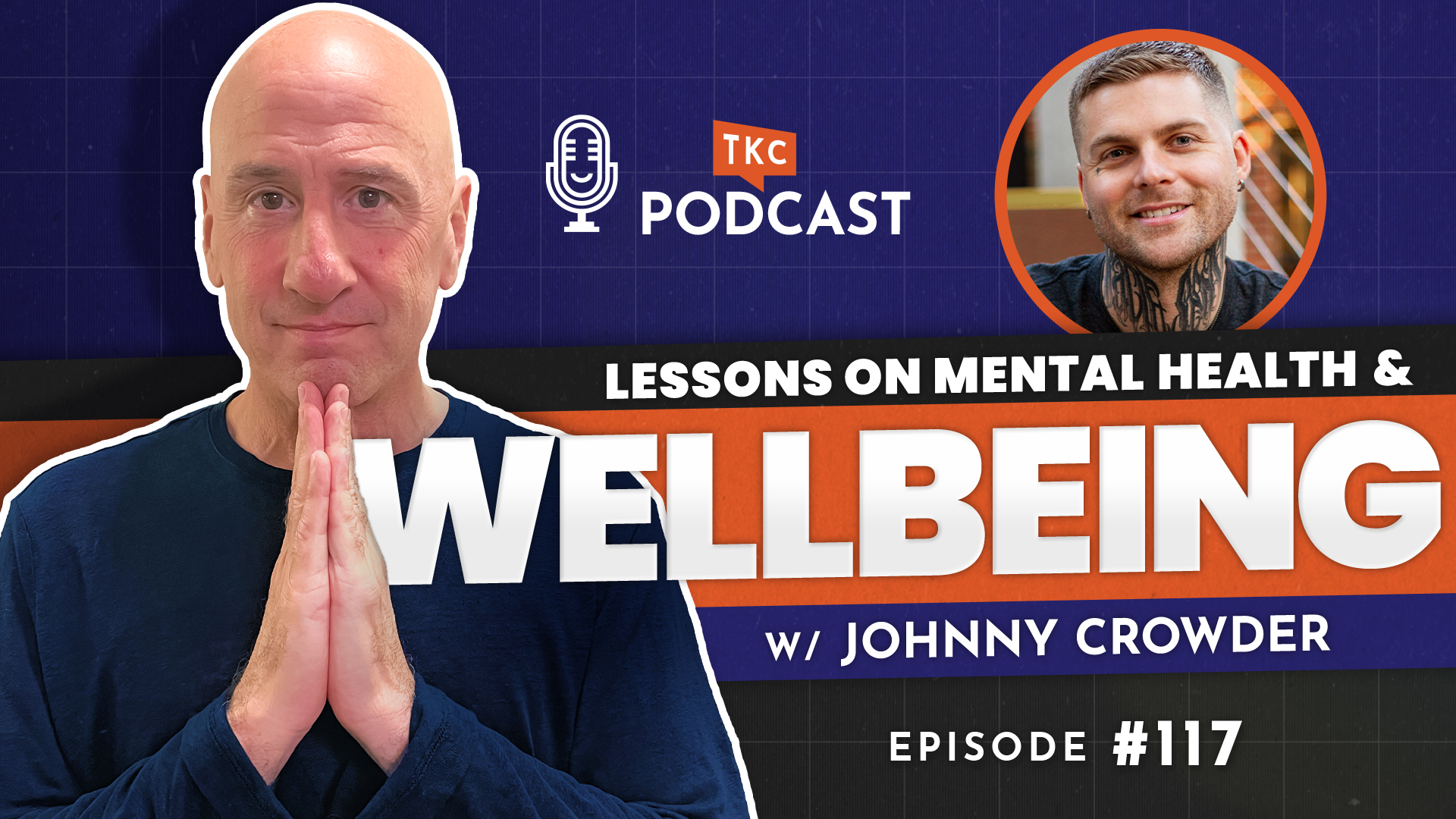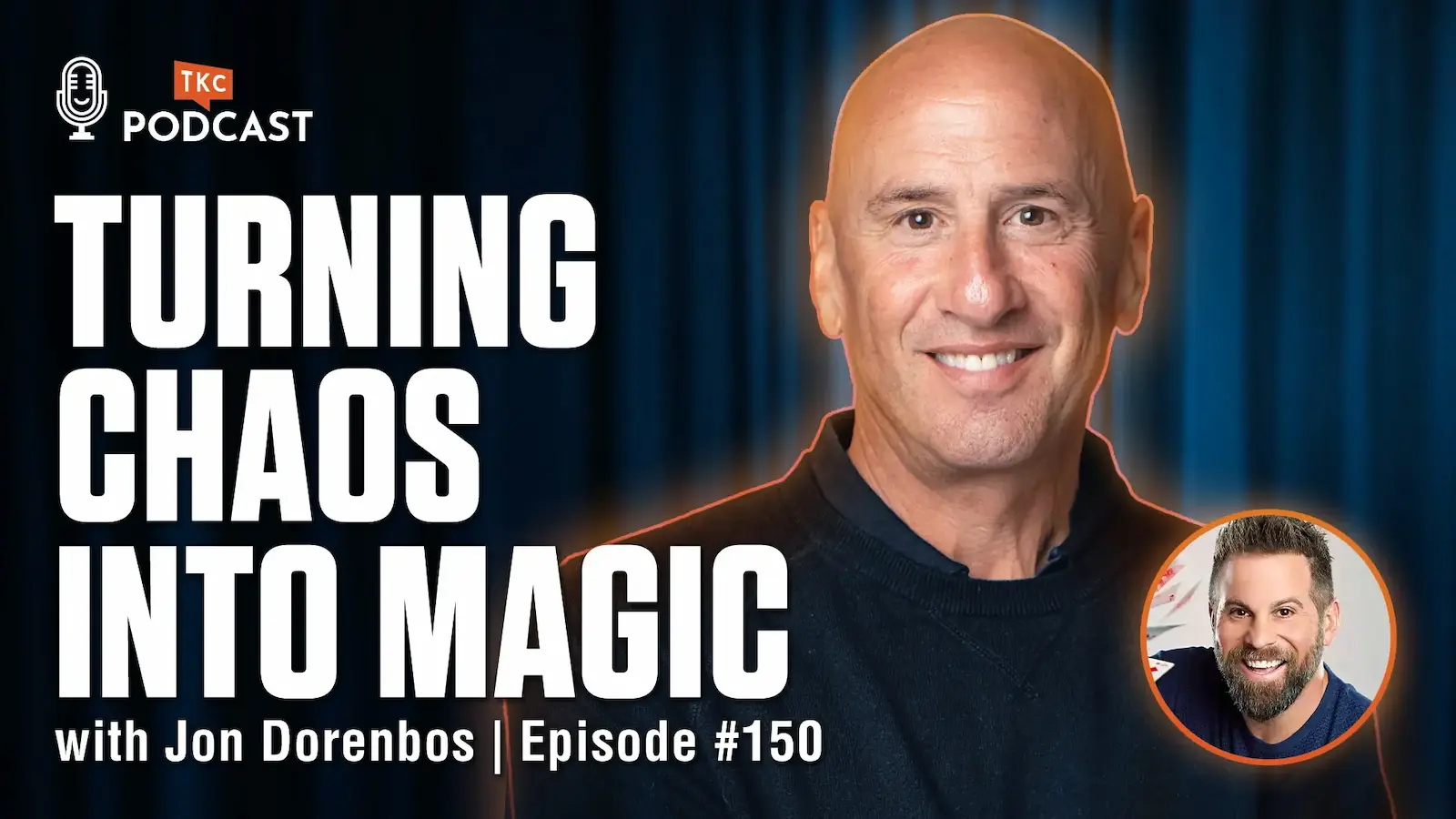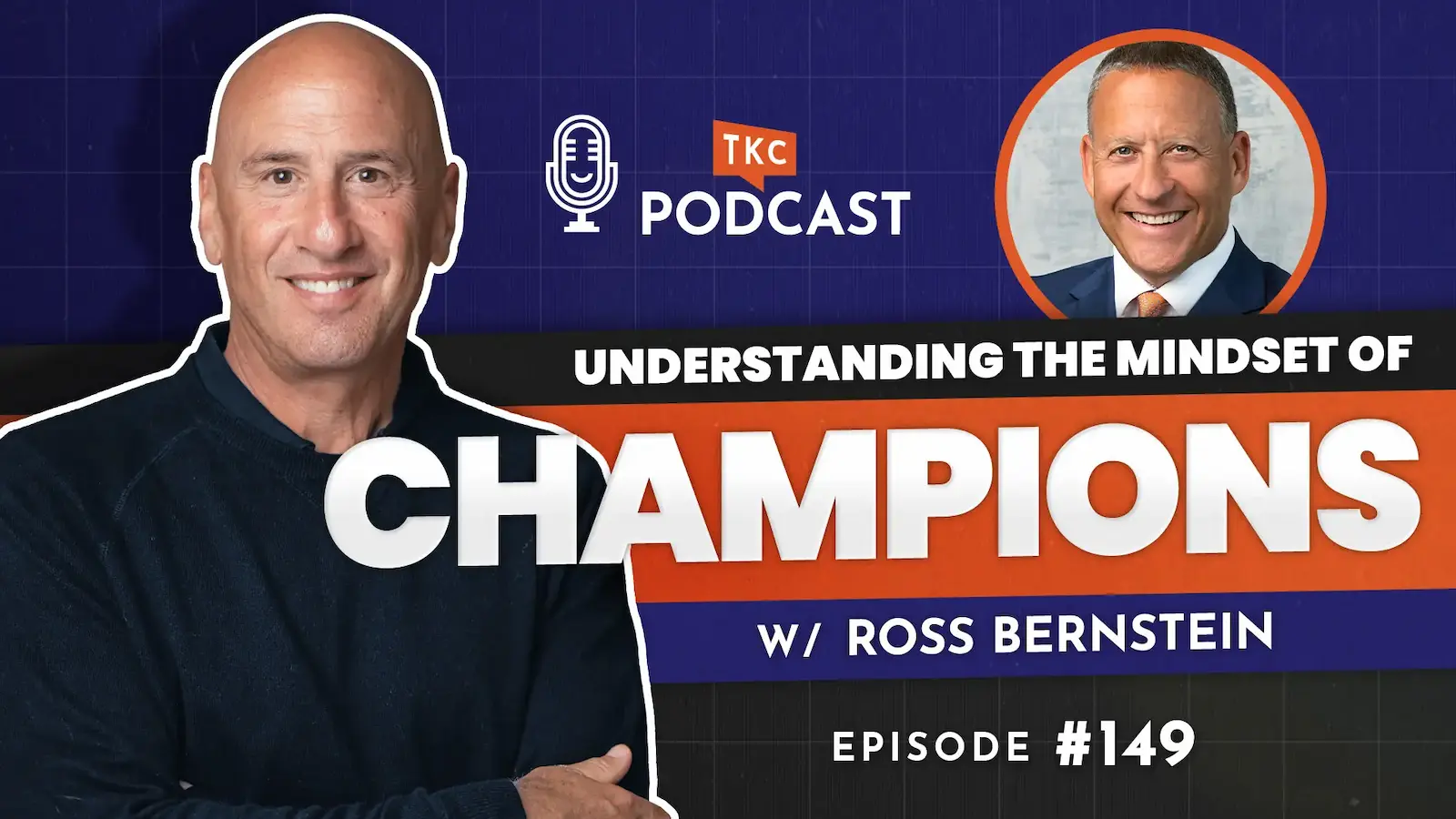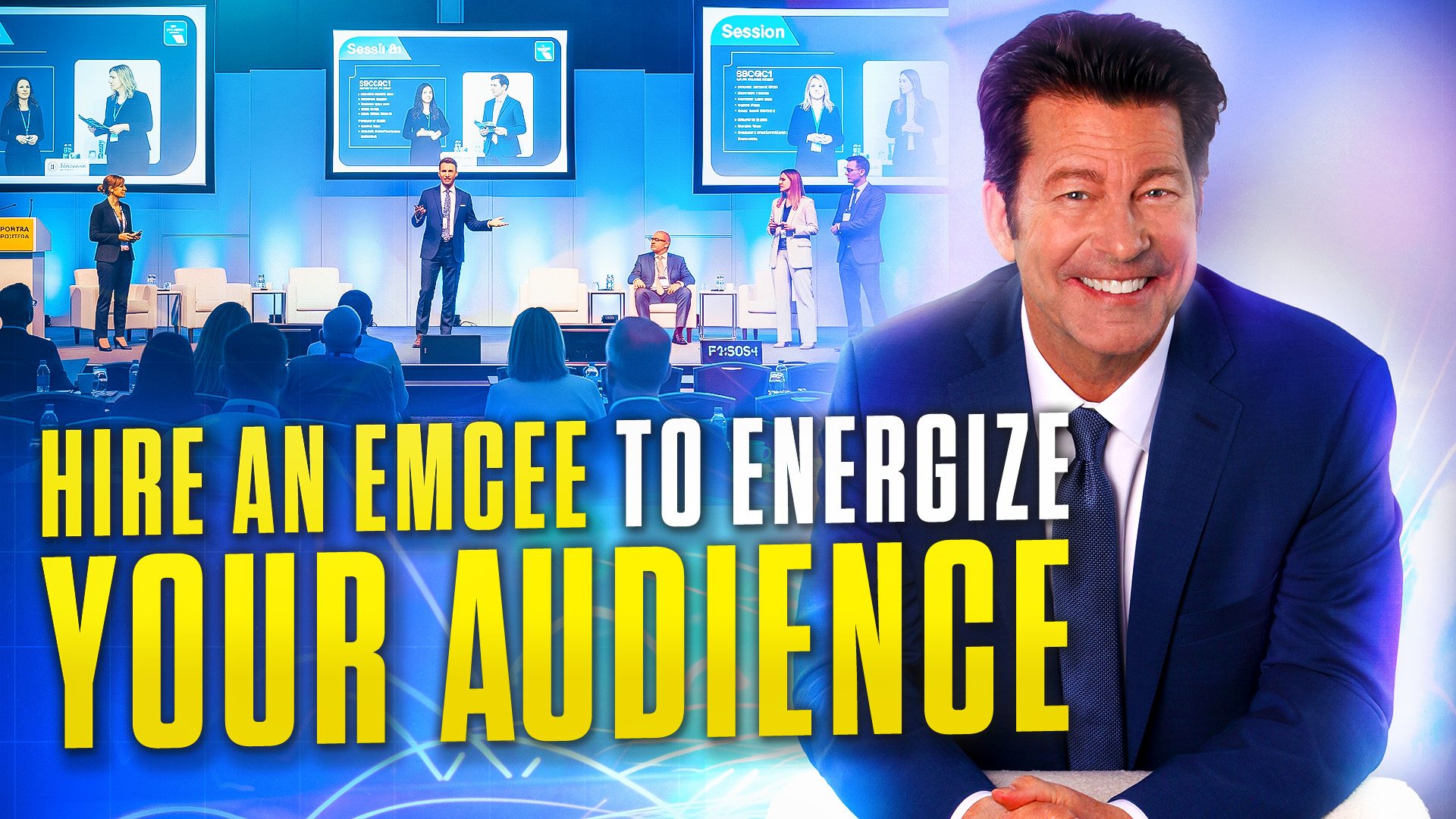
May 1, 2025Life Mission Statements and Mental Health with Johnny Crowder
Dive into real-life strategies for mental health, resilience, and culture change with keynote speaker Johnny Crowder.
?️ On this episode of The Keynote Curators Podcast, meet the rockstar-turned-mental health revolutionary who built a global platform out of pain, purpose, and the kind of radical honesty most people are terrified to speak aloud.
Keynote speaker Johnny Crowder rips the mask off mental health myths, toxic positivity, and why self-care isn’t a bath bomb but a battle. May is mental health Awareness Month—but for Johnny, it’s his life mission statement, an everyday advocacy. Be advised: this episode might change your life.
?️ Expect brutal truth, tattooed wisdom, and strategies to lead like a human in a world that glorifies burnout. If your company still treats mental health like a break room poster, this is your wake-up call.
? Watch and listen to the podcast episode: YouTube • Spotify • Apple Podcasts • Amazon Music
The Importance of Self-Care: Beyond Bubble Baths
Self-care has become a buzzy Instagram hashtag, but Johnny Crowder insists it’s far more than scented candles and spa days. As a resilience coach, Johnny explains that real self-care is about daily disciplines—tiny actions that rewire your neural pathways toward positivity over time. In his own life, he found that a morning routine of journaling one gratitude item, five minutes of mindfulness breathing, and a quick walk transformed his outlook during deep depression.
Companies often overlook these simple habits when designing wellness programs. Instead of launching expensive retreats, Johnny recommends integrating micro-moments of self-care into the workday: a two-minute “digital detox” after every meeting, midday gratitude check-ins via team chat, or 60-second guided breathing sessions led by managers. These small interventions accumulate, boosting health & well-being and reducing stress.
The Role of Cope Notes: Random Interventions That Stick
In 2020, Johnny founded Cope Notes, a service that sends daily mental health prompts via text message—simple, evidence-based strategies wrapped in casual, supportive language. These random interventions interrupt negative thought patterns and remind users to pause, reflect, and practice a quick self-care tool. One study found that regular Cope Notes users reported a 25% reduction in stress and a 30% increase in feelings of social support within eight weeks.
What makes Cope Notes effective isn’t rocket science; it’s consistency and timing. Johnny leverages positive psychology research to craft prompts like “name three things you appreciate about your work” or “take 60 seconds to scan your body for tension and release it.” Delivered at unpredictable moments, they catch people off guard—in the best way—prompting genuine reflection rather than predictable habit.
Organizations can replicate this approach by embedding random check-ins into daily workflows. A rotating “wellness champion” could drop a quick mental health prompt into team channels, or digital signage in offices might flash a daily self-care tip. These micro-interventions foster a culture where emotional health is woven into the fabric of work, not tacked onto it.
Confronting Toxic Positivity and Myth-Busting
One of the biggest barriers to genuine communication about mental health is toxic positivity—the idea that we must always appear upbeat, no matter what. Johnny Crowder confronts this myth head-on: “Telling someone to ‘just stay positive’ invalidates their experience and shuts down conversation.” Instead, he advocates for “radical honesty,” where leaders model vulnerability by sharing their own struggles.
During his 2020 TEDx talk (1M+ views), Johnny shared how admitting his panic attacks in front of hundreds of colleagues shattered stigma and encouraged others to seek help. He recounts team-wide “mental health huddles” where employees share one challenge and one coping tool—no sugarcoating allowed. These sessions create empathy and normalize conversations about anxiety, depression, and burnout.
Social Media’s Double-Edged Sword
In our always-online era, social media can both help and harm mental health. Johnny acknowledges that platforms like Instagram offer community and inspiration but warns against endless comparison scrolls. He urges teams to establish “social media sabbaticals”—set times when devices go offline and real-world connections take precedence.
Johnny’s own experiment—switching off notifications for two hours post-work—resulted in deeper family bonding and better sleep. He shares this tactic with audiences: schedule “notification-free blocks,” encourage mindful phone use, and cultivate offline rituals like team lunches or walking meetings. These practices not only reduce stress but also strengthen team culture and trust.
Transforming Trauma into Advocacy
Johnny’s journey from survivor to speaker fuels his authenticity. Having overcome poverty, abuse, and addiction, he refuses to sugarcoat the path to recovery. Instead, he offers a blueprint: acknowledge the trauma, find a supportive community, and adopt small, tangible habits that rebuild self-trust.
In corporate keynotes, he asks leaders: “How can you give employees permission to bring their full selves to work?” He points to research showing that teams led by managers who share personal challenges report 50% higher engagement. By transforming trauma into advocacy—speaking openly about setbacks and the coping strategies that followed—leaders can dismantle shame and foster empowerment.
Music as a Healing Tool
Few keynote speakers double as frontmen for a music band, but Johnny Crowder does exactly that with his heavy-metal group, Prison. He uses music to illustrate how creative expression and community can drive mental wellness. Performing live, he teaches audiences a simple mantra: “Breathe in the chorus, breathe out the stress.” Through call-and-response chants, he demonstrates how rhythm and collective energy shift mood instantly.
Research backs this up: group singing elevates oxytocin levels, reduces cortisol, and builds social bonds. Johnny encourages organizations to host “well-being open mic” sessions or lunchtime jam circles—spaces where employees can express themselves musically, poetically, or otherwise. These creative outlets complement traditional wellness programs, adding inspirational & motivational energy and forging stronger interpersonal connections.
Building Resilient Culture: Leadership’s Role
Strong leadership isn’t just about setting strategy; it’s about caring for people holistically. Johnny Crowder insists mental wellness must be a strategic priority, woven into talent development, performance reviews, and corporate values. He cites the Fortune 100 firm that inserted “mental health check” into every one-on-one meeting agenda, improving retention by 15%.
Resilient cultures share three traits:
- Psychological Safety: Employees feel safe admitting mistakes or asking for help.
- Regular Reflection: Teams pause weekly to discuss emotional well-being alongside project updates.
- Visible Role Modeling: Executives openly practice self-care and discuss mental health as a business imperative.
When leaders embrace these practices, they signal that well-being is not a perk but a core competitive advantage—fueling creativity, reducing burnout, and boosting personal development.
The Power of Daily Mantras and Rituals
Johnny’s approach centers on micro-habits—small rituals performed daily to anchor mindfulness and resilience. Examples include:
- Morning mantra: “I am more than my to-do list.”
- Midday gratitude pause: Name one thing you’re thankful for.
- Evening reflection: Note one win and one lesson from the day.
These rituals, backed by positive-psychology research, rewire neural pathways for optimism. When teams share mantras or build co-working playlists of “focus music,” these rituals become communal touchpoints that foster unity and attitude shifts.
Measuring Impact: Beyond ROI
Critics ask: how do you quantify mental health investments? Johnny offers pragmatic metrics:
- Engagement surveys with well-being indices
- Absenteeism and turnover linked to stress levels
- Usage data from Cope Notes or internal wellness apps
- Qualitative feedback via focus groups and storytelling sessions
By pairing quantitative and qualitative data, organizations reveal the genuine impact of mental health initiatives—stronger innovation pipelines, higher resilience scores, and improved health & well-being. These insights justify ongoing investment and signal that well-being drives sustainable business outcomes.
Personal Growth and Leadership
Finally, Johnny emphasizes that personal development and mental health are inseparable from effective leadership. He challenges leaders to ask, “What am I doing every day to stay mentally fit?” In his own life, he balances writing new Cope Notes features with band rehearsals and monthly therapy—modeling the integrated approach he preaches.
He leaves audiences with one burning question: What is your life mission statement? This question reframes success not as revenue or market share, but as the legacy of well-being and resilience you leave behind. When leaders embody this purpose, they inspire teams to bring their full, authentic selves to work—unlocking passion, productivity, and innovation.
✨ Hire Johnny Crowder to inspire your next audience with transformative keynotes on mental health and resilience
? More speakers who spark real change: thekeynotecurators.com
? Interested in talking about your next event? Schedule a time here: schedule a meeting
✉️ Or email us at: info@thekeynotecurators.com
Discover More Insights
Get in TouchContact US
Fill out the form so we can best understand your needs.
A representative from The Keynote Curators will reach out to you.








